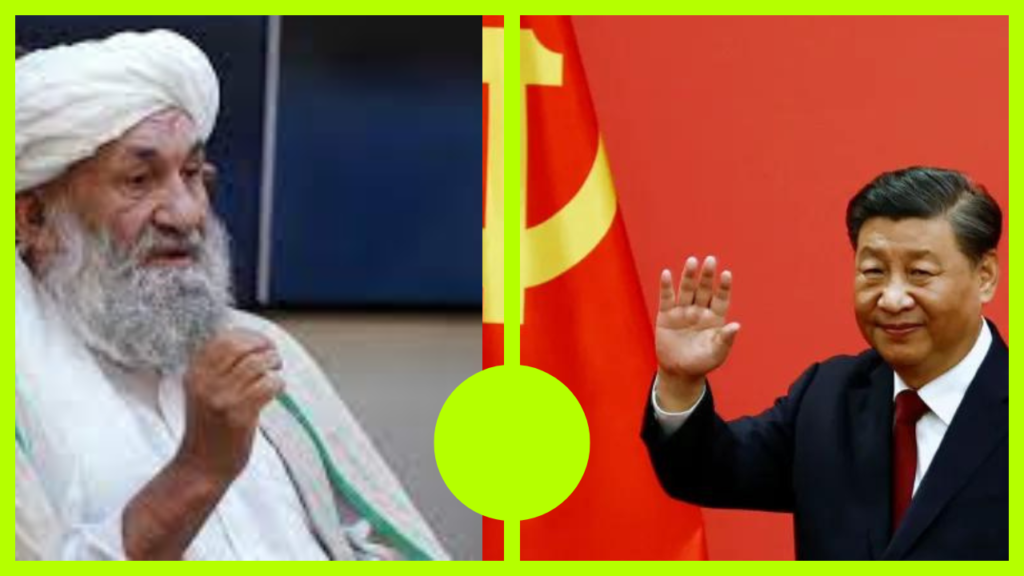Although the Chinese government has not recognized the present Afghan Government yet China getting closer to Afghan Taliban due to its growing interest in Afghanistan.
The exploration of the $1 trillion to $3 trillion in lithium, iron ore, cobalt, copper, gold, nickel, and chromite reserves thought to be under Afghan soil is widely assumed to be the primary focus of Chinese interest in Afghanistan. According to reports, many representatives from Chinese companies have visited Afghanistan to compete for mining rights, with a focus on lithium reserves that might satisfy domestic and global demand for electric vehicle batteries. The time and money commitments needed to mine lithium in Afghanistan have so far been deemed prohibitive by investors. Furthermore, China is unlikely to enter into a hasty arrangement to mine lithium reserves in Afghanistan in the foreseeable future given its access to extensive lithium interests throughout Africa and Latin America.
However, Chinese copper producers have recently encouraged their government to respond to disruptions in the world’s supply by stepping up copper mining in China and elsewhere. A Chinese business purchased the Mes Aynak copper mine’s rights in 2007; nevertheless, the mine has not yet been used. The Taliban’s Ministry of Mines and Petroleum was in discussions with the Chinese company about beginning operations at Mes Aynak, according to a report in Afghanistan’s Media. It is unclear if and when operations will start.
Through the China-Pakistan Economic Corridor and the Belt and Road Initiative, China has not provided the Taliban with development projects, but it has provided humanitarian help. According to The Los Angeles Times, China has also lowered tariffs on Afghan imports and restarted a pine nut shipping service, which provides $800 million to Afghanistan annually.
China has a diplomatic mission in Afghanistan even though it does not recognize the Taliban administration. Additionally, it has permitted the Taliban to setup Afghanistan Embassy in Beijing. China, in contrast to the bulk of the international world, doesn’t seem concerned about the Taliban’s treatment of women and girls. The Chinese foreign minister visited Afghanistan in response to the Taliban’s decision in March to backtrack on its pledge to permit girls to attend secondary schools to explore economic and political cooperation. In a resolution passed by 116 nations early last month, the U.N. General Assembly urged the Taliban to reinstate the freedom and human rights of Afghan women and girls. China was among those ten countries which did not participate.
Terrorism continues to pose a threat to future cooperation. The East Turkestan Islamic Movement, now known as the Turkestan Islamic Party, is not being dealt with harshly by the Taliban. The TIP, which is made up of about 1,000 Uyghur militants, is affiliated with radical organizations like Tehrik-e Taliban Pakistan, which has its stronghold in Pakistan, and al Qaeda. From strongholds close to the Chinese border, the TIP is allegedly plotting assaults against China and inciting discontent among Uyghurs in China’s Xinjiang province. The Taliban have driven Uyghurs from border areas into central Afghanistan, despite not handing over TIP militants to China. According to reports, the TIP started reestablishing bases in border provinces as of July 2022.
China is also concerned about the rise in anti-Chinese rhetoric coming from Islamic State-Khorasan, which has been behind high-profile attacks in Afghanistan after American forces withdrew. According to reports, IS-K is looking to lure Uyghurs into its cause.
Despite all hindrances; it is very likely that China may recognize Afghan Taliban as the legitimate rulers of Afghanistan. China may also re-think its relations with Pakistan which can change the strategic dynamics of various forces operating in the region.


